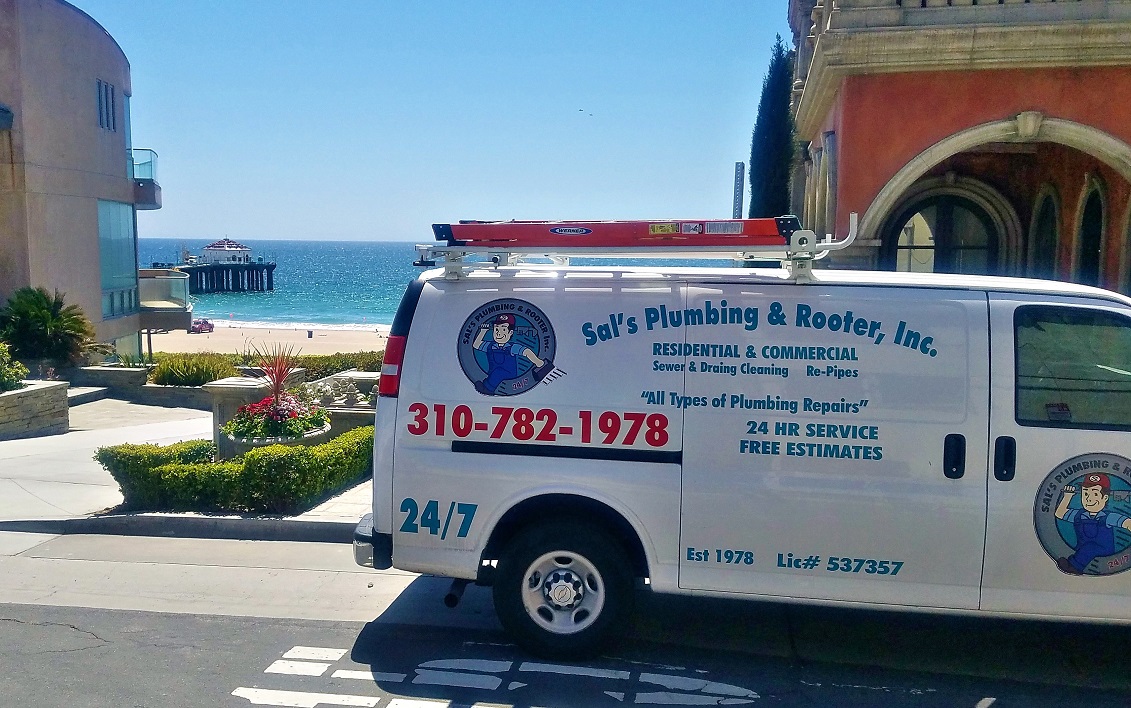
Plumbing Tips For Coastal Homes
Plumbing problems in your home can be expensive. If you don’t address them, you can cause irreversible damage to your home. It’s important to pay attention to the signs, no matter how small they may seem and call an emergency plumber immediately. Sal’s Plumbing as been the best plumber in the South Bay since 1979.
Homes near the beach often face unique challenges when it comes to plumbing due to the corrosive effects of saltwater, sand, and high humidity. Here are some plumbing tips for beach homes to help you maintain your plumbing system in a coastal environment:
- Install Corrosion-Resistant Plumbing Materials:
- Use corrosion-resistant materials like PVC, CPVC, PEX, or copper nickel for your plumbing pipes and fixtures. These materials are less susceptible to corrosion from saltwater and salty air.
- Regularly Inspect for Corrosion:
- Periodically inspect your plumbing system for signs of corrosion, such as rust or pitting on metal pipes and fixtures. Address any corrosion issues promptly to prevent leaks or pipe failures.
- Flush Pipes with Fresh Water:
- After spending time at the beach, flush your plumbing system with fresh water to remove salt and sand residue. This includes running fresh water through faucets and showerheads.
- Invest in a Whole-House Water Filtration System:
- Consider installing a whole-house water filtration system to remove impurities, including salt and minerals, from your water supply. This can help prolong the life of your plumbing fixtures and appliances.
- Elevate Plumbing Fixtures:
- Raise plumbing fixtures, such as toilets and sinks, above potential flood levels to minimize damage in case of a coastal flood or storm surge.

- Regularly Maintain Sump Pumps:
- If your home is prone to flooding, maintain your sump pump and ensure it is in good working order. Regular testing and maintenance can prevent water damage in coastal areas prone to flooding.
- Protect Outdoor Faucets:
- Install frost-proof outdoor faucets to prevent freezing during colder months. Also, consider covering outdoor faucets when not in use to protect them from the salty air.
- Inspect and Maintain Septic Systems:
- If your home uses a septic system, have it inspected and pumped regularly to prevent issues. Coastal areas may have a high water table, which can affect septic systems.
- Use Non-Corrosive Plumbing Fixtures:
- When choosing plumbing fixtures, opt for non-corrosive options made from materials like stainless steel or brass.
- Regularly Check for Leaks:
- Periodically inspect your plumbing for leaks, especially in areas that are less frequently used. Leaks can go unnoticed for a long time in vacation homes.
- Consider Hurricane Shut-off Valves:
- In hurricane-prone areas, consider installing shut-off valves for your water supply that can be easily closed in case of a storm to prevent water damage.
- Have a Reliable Plumber’s Contact:
- Keep the contact information of a local plumber who is familiar with the unique challenges of coastal plumbing for emergency repairs or maintenance.
By following these tips and staying proactive with maintenance, you can help protect your plumbing system in a coastal environment and minimize the risk of corrosion and damage from saltwater and sandy conditions.
Summary of Plumbing Tips For Coastal Beach Homes
If any of these Plumbing Problems persist and you don’t have the time to deal with them, please give us a call at (310) 692-4183, we are happy to stop by. Chances are that we have a plumber in Redondo Beach or a plumber in Manhattan Beach or a plumber in Long Beach when you need us!
Thank You!
